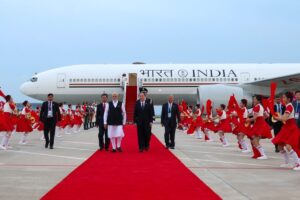This content is restricted to site members. If you are an existing user, please log in. New users may register below.
Guarded Engagement: Why Bangladesh Must Protect Its Trade and Strategic Sovereignty

Reading Time: 2 minutes In recent years, voices have pushed Bangladesh to open its transport corridors to neighbouring regions. On paper, this appears as regional integration. In reality, unguarded openness risks undermining the very industries that sustain our economy and strategic autonomy. Bangladesh has built export industries that form the backbone of the nation—ready-made garments (RMG) alone contribute over $40 billion annually, employing millions; our pharmaceuticals and ICT sectors are growing fast, with IT exports reaching $2.5 billion in 2024. Allowing neighbouring states—particularly Indian provinces—to use our ports, airports, or corridors subsidises their exports, enabling them to reach global markets faster and at lower cost, directly undercutting Bangladeshi goods. This is not cooperation; it is economic self-sabotage. Selective Engagement is the Smart Approach Not all neighbours pose the same risk. Providing access to ports or airports for Nepalese exports is safe, mutually beneficial, and strategically sound. Nepal’s trade footprint is

